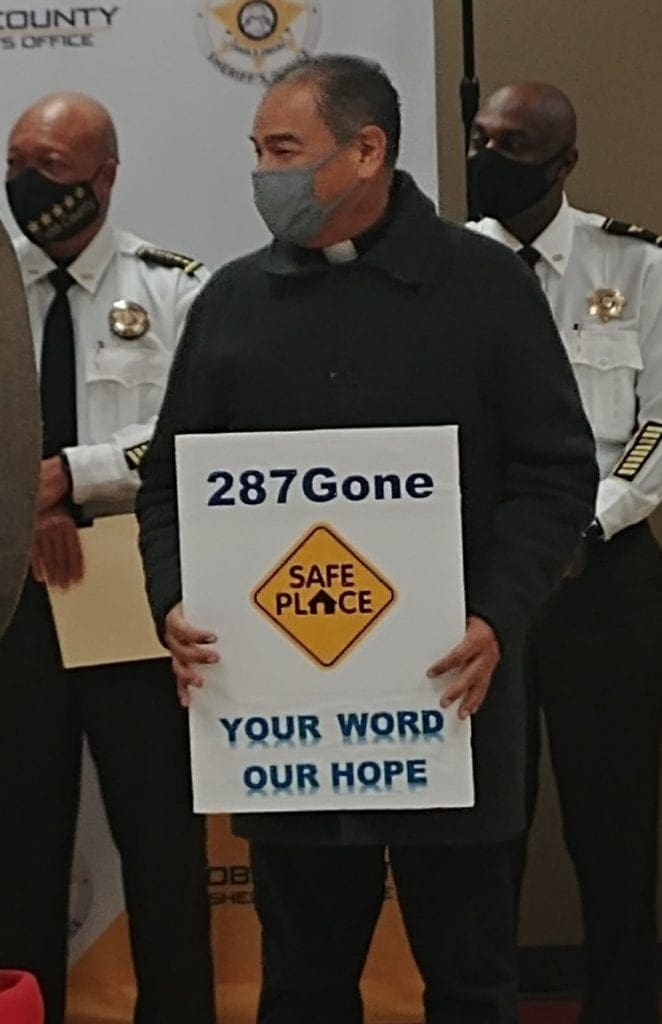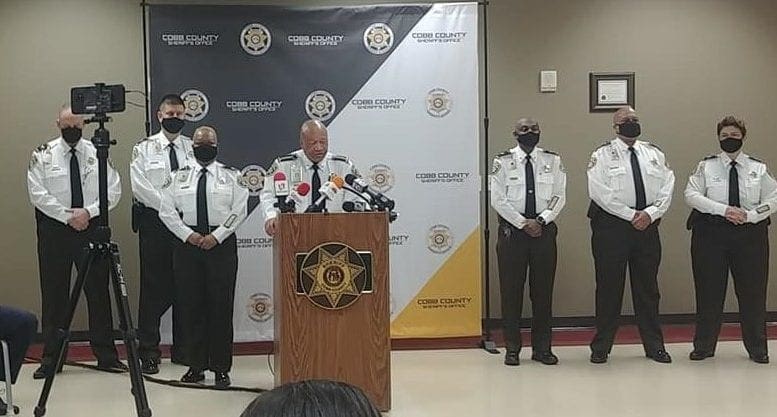Cobb County Sheriff Craig Owens is ending the county’s participation in the 287(g) program, he announced Tuesday.
Owens said that his action will encourage immigrants to not be afraid of having a relationship with Cobb’s sheriff’s office.
“So when [immigrants] have issues or crimes in their neighborhoods, they will come to police,” Owens said.

Owens also pointed to a CATO Institute study that says the program actually increases assaults against police officers.
Latino activist groups like the Georgia Latino Alliance for Human Rights have protested the 287(g) program for years. They say that the program leads to racial and ethnic profiling of Latinos and other people of color. Families are also torn apart.
Former Sheriff Neil Warren entered the agreement in 2007. He most recently renewed the agreement in June last year.
The program is an agreement between the sheriff’s office and U.S. Immigration and Customs Enforcement. Under the program designated deputies are given immigration enforcement powers by ICE.
The Cobb sheriff’s office has turned over hundreds of people to ICE in the years the program was running.

During his campaign, Owens ran partly on ending the 287(g) program.
Tuesday, Owens said that ending the program will make the county safer. He also said that violent criminals will still be arrested and the department will be even more aggressive in that aspect.
Owens acknowledged that Warren renewed the contract recently, and Owens has been meeting with ICE and attorneys to figure out how to end the contract.
Owens also addressed criticism about not ending the program on his first day. Owens compared himself to newly elected Gwinett County Sheriff Keybo Taylor, who ended the county’s 287(g) program on his first day.
“It just wasn’t that simple,” Owens said. “I had to transition … so I didn’t have the luxury of having some pre-consultation with the sheriff on his way out. So we had to start from ground zero.”
Despite that, Owens said now is the right time to end the program.
“I sincerely think this is the right thing for Cobb County to do,” Owens said. “I know it’s not going to be enough today to fully restore the trust [from immigrant communities], but we’re going to work hard to restore the trust and your faith in the Cobb County Sheriff Office.”

GLAHR President and co-founder Adelina Nicholls said today is a “beautiful” and “historic” day.
Nicholls said GLAHR and other activist groups have struggled for 13 years to end the 287(g) program.
“This work wouldn’t be possible without the support of the African-American communities and all our brothers and sisters that helped us in this campaign,” Nicholls said.
Nicholls thanked Owens for listening and being open-minded to all who have fought for the end of 287(g).
“I hope [Owens] is willing to keep his ears open to the needs of communities of color that still need to be discussed and put on the table,” Nicholls said. “Racial profiling, police brutality and other issues that communities of color are asking to be changed.”
She also said that everyone — not just one community — will benefit from the program ending.
“I think change has arrived and we the people made it happen,” Nicholls said.
